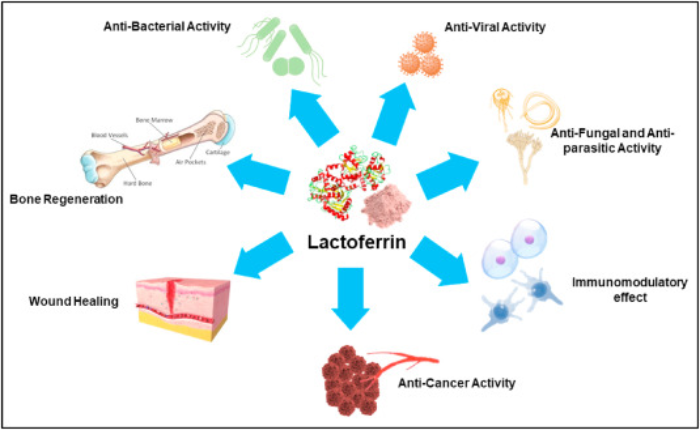Study Reveals Dangerous Levels of Heavy Metals and Misleading Labels in Popular Supplements for Pregnant Women
A recent study has raised concerns about the safety of prenatal vitamins, finding toxic ingredients such as cadmium, arsenic, and lead in certain products. Researchers tested 47 prenatal vitamins, including both nonprescription and prescription options, purchased from well-known online and physical stores. They analyzed the amounts of choline and iodine in these products and compared the results to the labeled claims.
The results were alarming: several prenatal vitamins contained excessive levels of heavy metals, which could pose serious health risks to both mothers and their developing babies. Specifically, 13 products exceeded the recommended cadmium levels, seven had excessive arsenic, and two contained unsafe amounts of lead. Additionally, some supplements did not match the ingredient quantities listed on their labels, with many failing to deliver the promised levels of nutrients like choline and iodine.
This issue is not just about improper labeling. Exposure to these heavy metals has been linked to various health concerns. For instance, cadmium has been associated with kidney damage, bone fragility, lung disease, and even cancers. Furthermore, higher cadmium levels during pregnancy have been found to increase the risk of autism in children by age three. Lead exposure is also known to cause significant damage to the brain, kidneys, and reproductive system, with the potential for developmental delays in babies born to mothers who were exposed to high levels of lead. Arsenic, even in small amounts, has been linked to cardiovascular issues, cancer, and nerve damage.
Dr. Laura Borgelt, the lead researcher, emphasized that while many pregnant women depend on prenatal vitamins to support both their own health and that of their baby, the presence of toxic contaminants in some products is concerning. The study, which was published in The American Journal of Clinical Nutrition, highlights a significant gap between what is stated on the labels of prenatal vitamins and the actual contents of the products, calling for stricter regulatory oversight.
The study also revealed discrepancies in the reported amounts of choline and iodine, two essential nutrients for fetal development. More than a third of nonprescription vitamins failed to accurately list choline amounts, and even fewer prescription products provided correct iodine levels. Choline and iodine play crucial roles in brain development and thyroid health, and their improper dosage can have serious consequences for both the mother and baby. Excessive choline can lead to low blood pressure and liver damage, while inadequate iodine intake may cause thyroid issues, including thyroid cancer.
Despite these findings, the study also stressed the importance of prenatal supplements during pregnancy, but advised women to be vigilant when choosing which product to take. The researchers recommend consulting with a healthcare professional to select the best prenatal vitamins and ensuring that the product contains the correct ingredients at the right doses. However, the study did not disclose the specific brands of the prenatal vitamins tested.
Commentary by YourDailyFit columnist Alice Winters

This study highlights a critical issue in the prenatal supplement market: the reliability and safety of products intended to support the health of both mother and child. While prenatal vitamins are often touted as essential for pregnancy, this investigation sheds light on the alarming gaps in both content accuracy and safety that have been largely overlooked.
The presence of toxic heavy metals such as cadmium, arsenic, and lead in prenatal vitamins is particularly concerning given their well-documented links to serious health issues. The finding that some of these metals exceed safe limits, as set by reputable organizations like the US Pharmacopeia, signals a larger issue of inadequate regulation and oversight in the dietary supplement industry. It’s troubling to think that consumers—often in vulnerable states like pregnancy—are relying on products that may contain harmful substances, especially when such risks are not clearly communicated.
Moreover, the failure to meet labeling claims, particularly concerning nutrients like choline and iodine, undermines the very purpose of prenatal vitamins: to provide essential nutrients for fetal development. The discrepancies in iodine levels, which can lead to thyroid issues, are especially worrying, as thyroid dysfunction is linked to a range of developmental and metabolic problems in both mothers and children. Similarly, the over- or under-supply of choline, which plays a pivotal role in brain development, could pose severe risks when not properly dosed.
In addition, while the study stresses the importance of prenatal vitamins, it also calls for more robust regulatory measures to ensure product safety. This is a critical point—especially in an industry where oversight is often lax. The fact that the study did not name specific brands is indicative of a wider problem in which the burden of ensuring safety falls squarely on the consumer, rather than on manufacturers who must be held accountable for their products’ quality.
As consumers, it is vital to question the transparency and quality of the products we use, especially when it comes to something as important as prenatal health. This study calls for a collective effort—from researchers, regulators, and manufacturers alike—to prioritize the safety and well-being of both mothers and their children in the formulation and labeling of prenatal supplements. Until then, relying on healthcare professionals and exercising caution when selecting such products remains essential.



